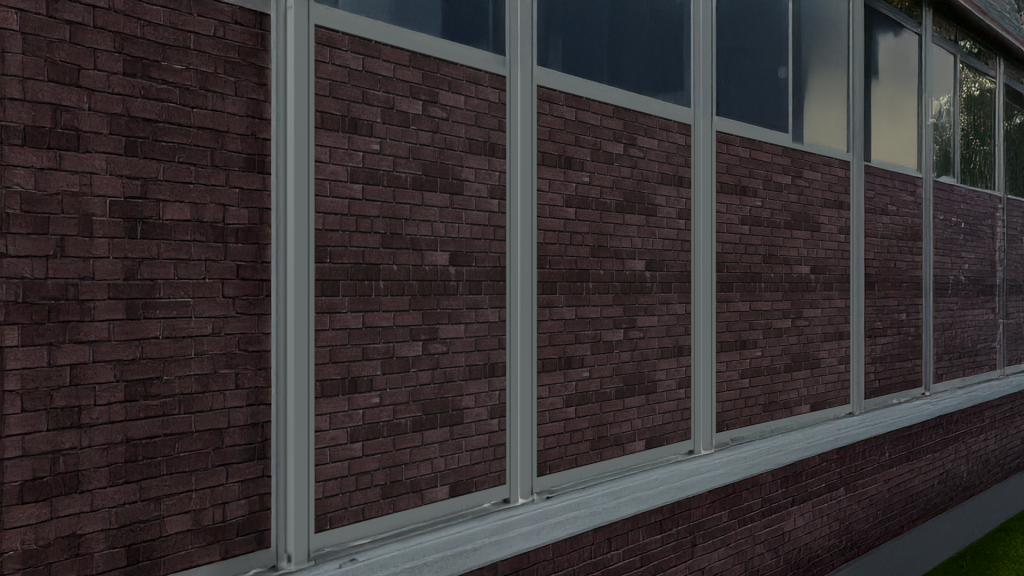Acoustic Screening for Office Buildings

Mitigating noise levels has become increasingly important in today’s chaotic, fast-moving world — even in environments such as office buildings. While typically thought of as quiet and devoid of mechanical noise — while often imagined as workplaces where the most disruptive noise consists of keyboards being tapped and the occasional co-worker whose voice carries too much too long — office buildings benefit enormously from controlled noise levels. That is, if the screening used to absorb and limit sound waves is of high quality — such as the acoustic panels made and sold by PalmSHIELD. In this article, we’ll explain acoustic screenings and how they can make the workplace more comforting and relaxed for desk workers.
Why do office buildings need acoustic panels?
While the actual office environment is stereotypically quiet, many office buildings are located in close proximity to the industry they’re associated with. So if your employees manage the corporate office for a manufacturing company, odds are they’re in close proximity to a plant: with trucks and trains passing by on the regular, with mechanical noise penetrating the walls and windows, etc. If you work near an airport, all day long the sound barrier’s being shattered by roaring turbines. Even being located at street level can be distracting, since that leaves you vulnerable to nonstop city noise (bus engines, honking horns, etc.). All of which adds up in the long run, distracts workers, and can even have some long-lasting effects. Potential effects of unmitigated noise pollution in the office include:
- Reduced productivity. Consistent noise inevitably wears down one’s ability to concentrate. While office workers might be able to power through the grind the first couple of days, in time they’ll slow down due to exhaustion and irritation. As a result, whatever work does get done will likely be quantitatively and qualitatively lower.
- Annoyed visitors and clients. Does your office building also feature a pick-up lobby where customers come to receive products? How about on-site conference rooms where clients show up for the occasional meeting? Imagine their disposition if the area’s swamped with mechanical and vehicular noise — versus how they’d feel in an area that’s acoustically sealed.
- Damaged health. Although more common among factory workers and people who deal with mechanical equipment for their livelihood, negative health effects caused by uncontrolled noise can include hearing loss, reduced sleep, and cardiovascular disease.
As the property manager, it’s incumbent upon you to solve sources of discomfort. If noise levels are hindering productivity or making clients feel uneasy, consider installing acoustic screens. But how do these panels help in the first place? Read on to learn more!

Before we continue: are you ready to discuss acoustic panels? Contact us today for a free quote on your project!
How do acoustic screens help control noise levels?
PalmSHIELD sells three distinct acoustic screening styles as part of our Silere brand. Each handles sound waves in its own unique way.
- Full Air Foil Acoustic Louvers. Because architectural louvers remain a staple in today’s landscape, it’s often advantageous for property owners to install acoustic panels that use these parallel slats to limit visibility while maintaining an attractive aesthetic. Louvers also permit ventilation for mechanical equipment such as HVACs. In short, acoustic louvers allow you to reduce mechanical noise without compromising functionality.
- Acoustic Solid Panels. Solid panels are ideal for blocking off noisy equipment that doesn’t require ventilation. The interior of these screens features perforated sheeting for superior sound wave absorption.
- Semi Air Foil Acoustic Louvers. This infill uses louvers made from a noise-dampening foam-filled foil. The design allows you to cover some of the louvers.
Now that we’ve covered the basics of acoustic screening, how can we apply this to an office setting? Let’s discuss that now.
How to install acoustic screens for an office building environment
As we mentioned before, acoustic screens are typically installed around mechanical equipment such as factory equipment, HVAC units, transformers, and cooling towers. So, how do you make that work for an office environment? Again, if your corporate office is located near mechanical equipment, a manufacturing plant, etc., surrounding the equipment will greatly reduce the noise levels, meaning less sound pollution makes its way to your office. You can also install them around your office’s HVAC units to keep the noise levels down.
Here’s another installation tactic useful for office buildings. You can install Silere acoustical panels alongside your building. This absorbs and greatly reduces noise — from all sources — entering your office. PalmSHIELD’s screens are visually attractive, meaning they won’t detract from your building profile and might even add to it.
If you have more questions about PalmSHIELD’s Silere product line, our sales team is ready to answer questions, discuss sound-reducing solutions, recommend products, and provide a free quote on your project. We custom design and manufacture our screens to match your specific spatial, visibility, and ventilation needs.
